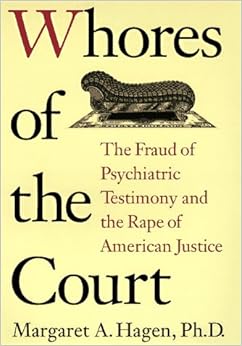 |
| “For some, the decision to self-represent reflects a confidence in their own knowledge and ability to navigate the system; for others it’s a distrust of lawyers.” |
The increase in self-representation among family litigants creates challenges for the justice system as well as for lawyers and their clients. It is clear that a significant amount of self-representation will be a permanent feature of family justice; lawyers, judges and the justice system will have to deal more effectively with family litigants without lawyers. There will, however, also continue to be a critically important role for good family lawyers, and the rise of interest in self-representation is actually creating some new opportunities for providers of legal services.
Pro Se HQ: Argument To Legal Reasoning Formula
Excerpt from blogpost:
Let's discuss the arguments that a pro se litigant, attorneys, and judges make during the course of a legal matter before a court of law.
 Pro se litigants need to understand the concept of "argument" because this is usually the intersection where the law and (JSHIT) hit the fan.
Pro se litigants need to understand the concept of "argument" because this is usually the intersection where the law and (JSHIT) hit the fan.
Any presentation of a basis in law and fact is meaningless without an understanding of the concept of "argument."
When the layman thinks of arguments, he or she usually resorts to the common thought of making statements leading from a premise to a conclusion. To do this is what leads to many pro se litigants failing to present their case properly. This is because their presentation takes on the form of a "street level" argument and it is lacking in a basis in law to support their facts.
The discourse described above can be said to lack "legal reasoning." Hence, pro se litigants as well as lawyers, and judges must be able to finish or complete this formula: Facts + Laws > Legal Reasoning.
 In chemistry a chemist is able to show, by a formula, that the combination of: A + B > AB, so too the pro se litigant must be able to show that their Facts + Laws > Legal Reasoning, and thereby said presentation becomes persuasive.
In chemistry a chemist is able to show, by a formula, that the combination of: A + B > AB, so too the pro se litigant must be able to show that their Facts + Laws > Legal Reasoning, and thereby said presentation becomes persuasive.
Blacks Law Dictionary's definition of the terms is not required to understand the two terms of "argument" and "reason." The definition given by Merriam Webster's 11th Collegiate Dictionary for the terms are as follows:
 Argument- 2a: a reason given in proof or rebuttal b: discourse intended to persuade 3b: a coherent series of statements leading from a premise to a conclusion.
Argument- 2a: a reason given in proof or rebuttal b: discourse intended to persuade 3b: a coherent series of statements leading from a premise to a conclusion.
Reason- 1a: a statement offered in explanation or justification b: a rational ground or motive c: a sufficient ground of explanation or or logical defense: especially: something (as a principle or law) that supports a conclusion or explains a fact d: the thing that makes some fact intelligible: CAUSE.
Once more I drive home the premise that to take a matter to court you must be armed with a basis in fact and law. Understanding the definitions above we can see why.
 Starting with a set of facts, the plaintiff or the defendant has to gather evidence to show that said facts did or did not occur. Then based upon the occurrence or non-occurrence of some facts he or she must state what the law says if a set of facts has or has not happened. Example: if one takes something that doe not belong to him or her, or he has no legal right to take that thing a theft occurs. If he or she can prove that they did not take or had a legal right to take the thing a theft has not occurred.
Starting with a set of facts, the plaintiff or the defendant has to gather evidence to show that said facts did or did not occur. Then based upon the occurrence or non-occurrence of some facts he or she must state what the law says if a set of facts has or has not happened. Example: if one takes something that doe not belong to him or her, or he has no legal right to take that thing a theft occurs. If he or she can prove that they did not take or had a legal right to take the thing a theft has not occurred.
In the above if a thing is proved to be taken and that the taker lacked a legal right to take the thing the law says that a theft has occurred. Here is where one must get their basis in law correct by referring to the statutes of the jurisdiction that they are in. If I may cross the line and become "long-winded,"



























